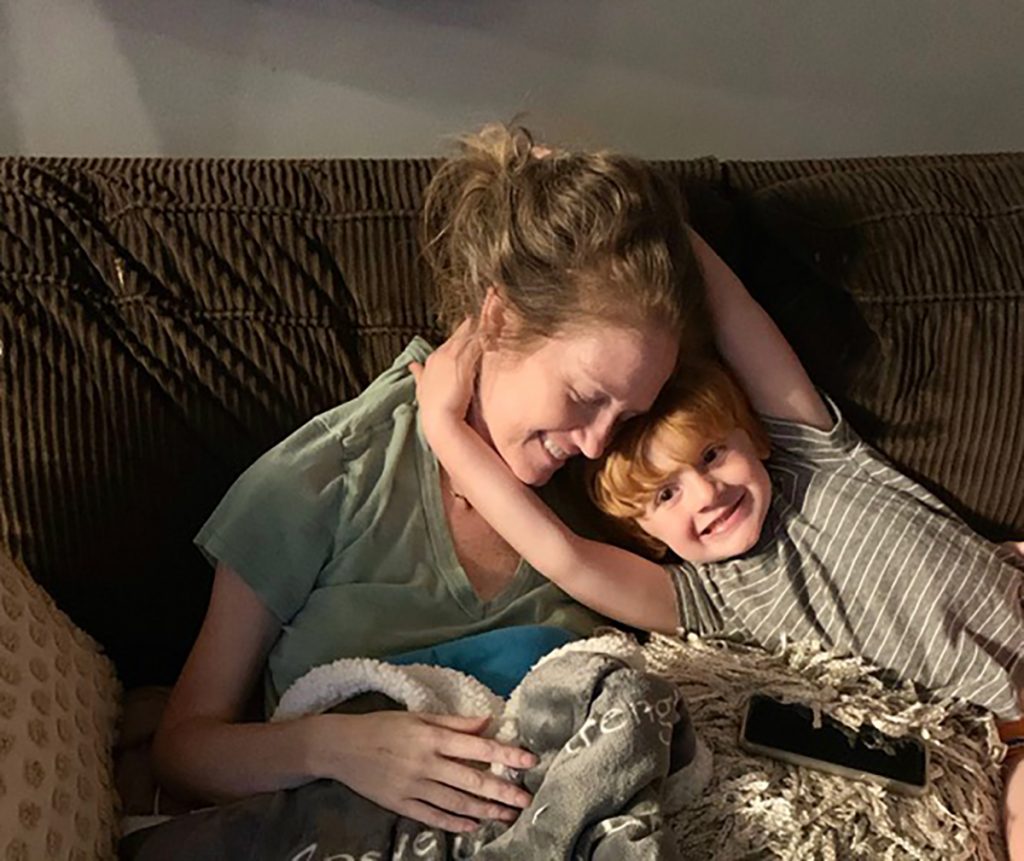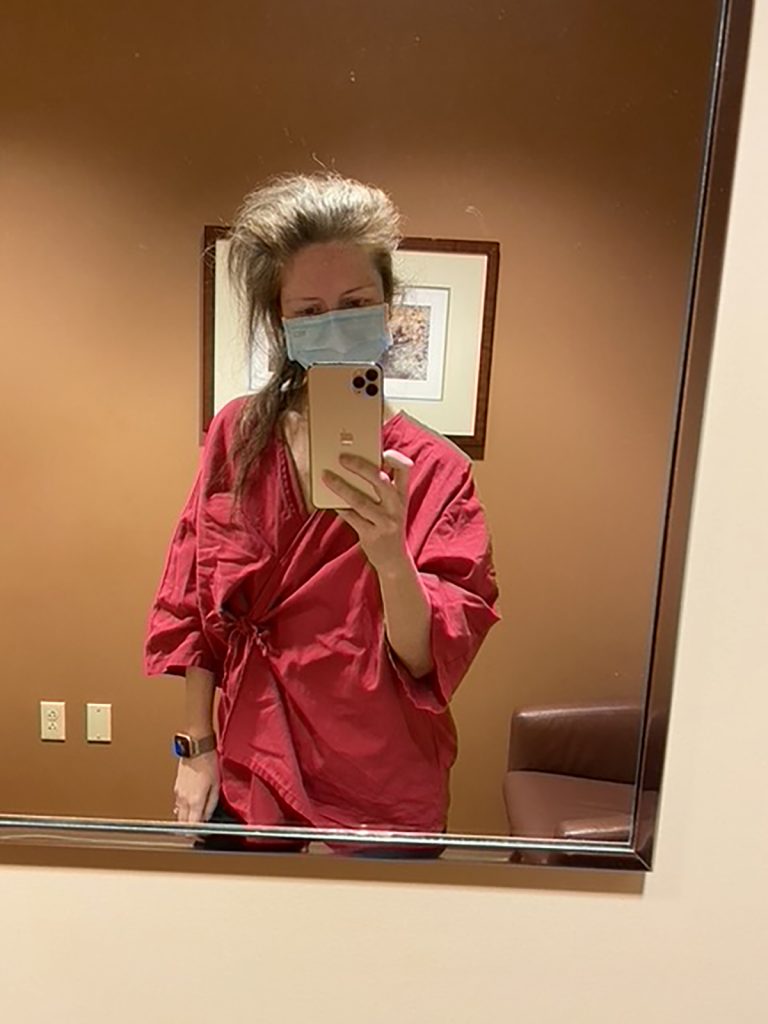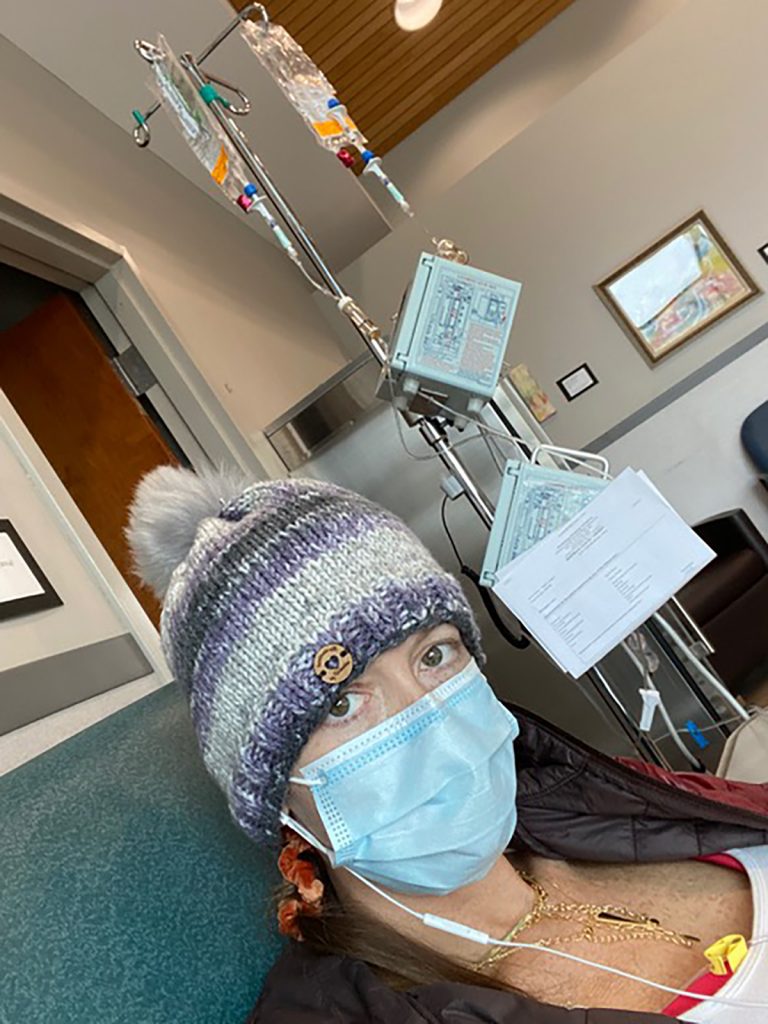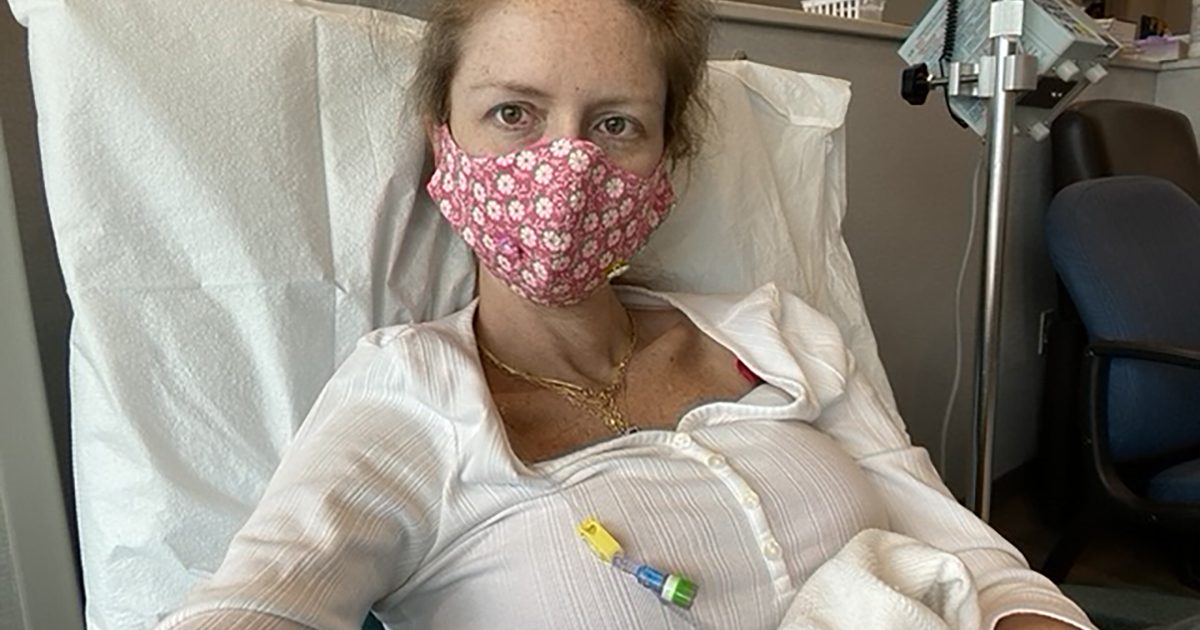Mental Health & Cancer
- Indianapolis news anchor Lindy Thackston, 41, said mental health is not something she struggled with before being diagnosed with colon cancer.
- Now, as another important test result is looming, Thackston spoke with SurvivorNet about the importance of prioritizing your mental health amid, and especially after, a cancer battle.
- Choosing who to tell about your cancer diagnosis is extremely personal. Thackston never questioned whether or not she would share her cancer battle with the world; she always knew she would.
Mental health is not something she struggled with before being diagnosed with colon cancer. But now, as another important test result is looming, Thackston, 41, spoke with SurvivorNet about the importance of prioritizing your mental health amid, and especially after, a cancer battle.
Read MoreMental Health & Weight Gain
Thackston, a news anchor at FOX59 in Indianapolis, recently received the great news that she does not have to go through chemotherapy again, as her Signatera blood test returned a negative result. However, she took another test just a few weeks ago. And she is expected to get those results in the coming days or weeks."The main thing I dread with that news is what it could do to my mental health," Thackston added, "because part of me would just feel like if it (the cancer) comes back, then that's it." (This is similar to scanxiety a term in the cancer world that means the uneasiness cancer survivors experience in anticipation of scans that could show a relapse or recurrence in their disease.)
Thackston has been transparent about her cancer battle since she was diagnosed nearly two years ago; she has been just as open about what fighting cancer has done to her mentally, as she is a advocate for mental health.
Adding to her previous comment, she said she knows it is not the "positive attitude you're supposed to have, but cancer does a lot to you mentally, and now that I've come out of a two-year fight from it, it's almost more mentally difficult now, because you're going, 'Wow, what just happened?' and you're constantly worried it (the cancer) could come back."

Thackston told SurvivorNet that physically, "I'm in a much better place than I was, but I do still have a lot of fatigue," which she acknowledged could also be from the fact that she gets up at 2 a.m. to anchor and morning news show and has an energetic 6-year-old son.
"I'm starting to be able to do 15 to 20 minute yoga videos almost every day," she said. "That's helping."
However, one thing Thackston said she did not expect to experience mentally is what she called a "body dysmorphia type thing."
"I lost a lot of weight when all this happened," she told SurvivorNet. "I normally weigh about 130 to 135 (pounds) and I went down to about 88 (pounds). … So, a mental aspect about all this that I didn't think of and that I plan to talk about actually in my next podcast is the mental issue of gaining your weight back."
"It's actually difficult to do even though you know what you weighed before and it's your healthy weight kind of hard to explain but it's really hard to lose that much weight and then start gaining it back," she continued. "I don't know if that's because I'm in the public eye; there are a lot of things I'm not sure if I deal with differently because I'm in the public eye or not, but I imagine it's difficult for everyone."

"I mean, this sounds crazy, but I feel huge. And when I say that to anyone but my therapist, they think I'm crazy. But you know, on the other side, I had to get all these new clothes when I dropped 40 pounds. And everything I'm trying to put on now doesn't fit."
Because of all the radiation she encountered during treatment, Thackston told SurvivorNet that she can no longer have children. But, she said she felt "so huge" that she even took a pregnancy test.
'Survivor's Guilt'
In addition to struggling with weight, Thackston said she is also dealing with survivor's guilt.
She said she has now reached the point that "it's been a couple of years that I've had a couple friends pass away (from cancer), and, you know, I have friends who continue to get bad news and it doesn't look good for them."

"That part of it is really difficult for me as well; you deal with a lot of survivor's guilt," she added.
However, Thackston makes it a point to note that it does not help to compare yourself to others while fighting cancer.
"You can be (at) the same stage, same diagnosis, same everything as someone else and you're going to have a completely different case than them," she told SurvivorNet. "So, try not to compare yourself to the people you see in your support groups online or in person, who pass away or the difficult things like that."
Lindy Thackston: Sharing Her Story
Battling cancer is an extremely personal experience, and so is choosing who to tell about your diagnosis. For some people, it is a no-brainer to share their struggle and absorb as much support as possible, while for others, sharing the news does not come as easy.
Thackston, however, never questioned whether or not she would share her cancer battle with the world; she always knew she would. It is something that has contributed to her vast support system; sharing her story has even contributed to other men and women getting diagnosed with cancer early because Thackston's story inspired them to get checked out themselves.
Dr. Marianna Strongin, a licensed clinical psychologist and founder of Strong In Therapy Psychology, previously told SurvivorNet that whether someone shares this heavy news is their personal preference.
"I recommend sharing, I'm a therapist," Strongin said, "but to whom and how many people is up to the person (with cancer)."

While Thackston was open about her story with her family and friends, she has also been extremely open about her cancer battle on Instagram.
"I don't really understand why people would keep it a secret, but I now realize that a lot of people wouldn't be that open about it," she said, adding that another thing contributing to her mental health is looking back at old photos of herself when she had a buzz cut. "I almost feel some embarrassment even though I know that doesn't make sense, but it's really hard now to look back at how I looked and what actually happened."
Regardless, she said she is happy with her decision to share her story "because of the messages I get (from) people that have literally gone to get a colonoscopy because of my story and had a tumor found."
Learn more about SurvivorNet's rigorous medical review process.


